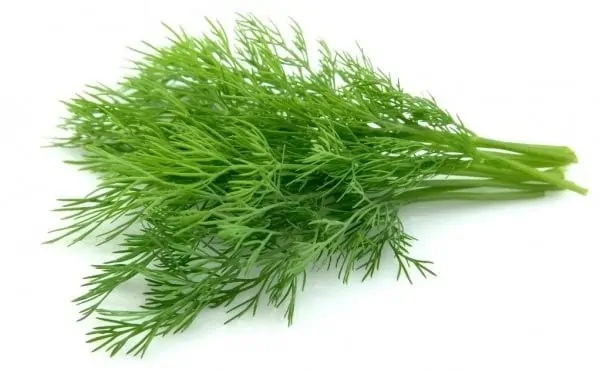
Dill is a herbal plant. It is an addition to our meals, diversifying flavour and providing spice or simply adding some colour to food. It’s nothing we typically eat by the forkful but it has many health benefits. Freshly chopped and sautéed dill is a superb addition to e.g. green salads, potato salad and salad dressings. It can also be used for preparing soups and sauces and even the seeds of dill are used to flavour spicy dishes and for pickling ingredients. Thanks to its invigorating aromatic fragrance and citrusy flavour, dill leaves are extensively used in European and Asian cuisines.
Nutrients in Dill Leaves
- Vitamin A, C, D
- riboflavin
- manganese
- folate
- iron
- copper
- potassium
- magnesium
- zinc
- dietary fibres
All of those are nutrients and antioxidants. Not only does dill leaves protect the cells against free radical damage but also promote healthy vision, augment skin, boost immune functions, treat digestive anomalies, remedy sleep problems, fortify bone health, relieve respiratory infections, regulate hormonal balance, and enhance reproductive health.
Health Benefits Of Dill
- helps manage and prevent digestive ills, and bad breath
- promotes lactation
- lowers cholesterol and blood sugar
- regulates diabetes
- promotes digestion
- fortifies bone health
- prevents infections
- helps insomnia
- for culinary uses
More detailed about the health benefits of Dill
The production of insulin from the β-pancreatic cells becomes active on taking fresh sprigs of dill. It also extensively helps to reduce the breakdown of starch into glucose which in turn prevents sudden sugar spikes and provides a balanced diabetic reading.
The anti-flatulent property of fresh dill sprigs reduces the formation of gas in the alimentary canal, thus reducing bloating, flatulence, and abdominal distension. The abundance of fibre in the herb helps in stimulating peristaltic motion by expelling wastes out of the body and thus makes for a powerful remedy for constipation. Additionally, the antacid property of the herb prevents the formation of excessive acids in the stomach thereby treating indigestion, ulcer, gastritis and promoting better absorption of nutrients in the body.
Adding dill to daily diet enhances calcium absorption, diminishes bone loss thus preventing chronic conditions like osteoporosis. Bones form a vital part of the human body, as it gives shape, structure and support to the muscles and organs. Thanks to the goodness of calcium, iron, vitamin D, thiamine, riboflavin and fibre, dill leaves ensure proper bone cell growth, regeneration, which in turn helps in bestowing a positive structural development of the body.
Thanks to its strong anti-microbial properties, dill leaves are not only used for removing bacteria or germs from the body but also used for treating and healing wounds. It is also extremely beneficial in treating cough and cold, reducing general debility, weakness, fatigue and improving the overall vitality of the body.
